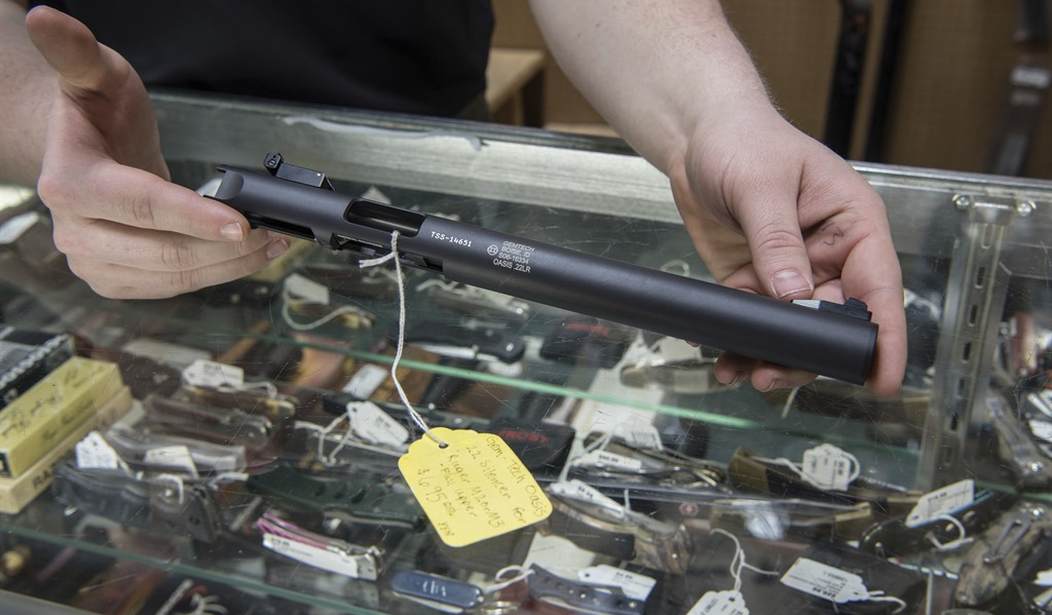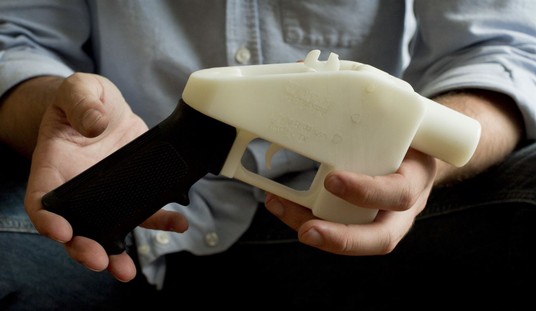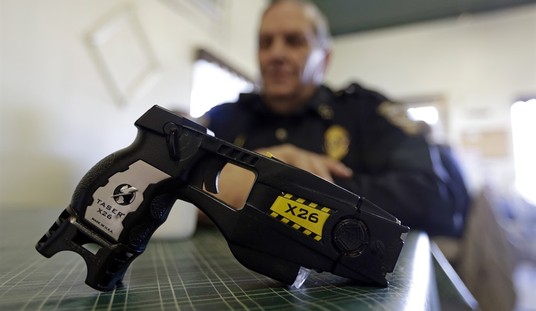Guns are dangerous. If not used properly, they can lead to heartbreak and tragedy. If used properly, they can still cause problems.
There's a reason that we wear eye and ear protection while shooting, and now a medical group wants the law to address that, but in a positive way.
See, normally when we hear about doctors getting into the discussion about guns, it's someone who sees just one side of what guns do and want to restrict what you and I can do in response. This time, however, we have a group of doctors who are seeing one side of the gun issue and rather than restrict things, they want to legalize something a lot of us want legalized in the first place.
They want suppressors to be easily available.
Sound suppressors, often called silencers, help protect gun owners’ hearing.
That’s the conclusion one of the largest ear-doctor organizations, with more than 13,000 members, reached this month. The American Academy of Otolaryngology–Head and Neck Surgery (AAO-HNS) issued a position statement backing the use of the noise-reducing devices. It pointed to three different studies that found suppressors help prevent hearing loss.
“Sound suppressors are mechanical devices attached to the barrel of a firearm designed to reduce harmful impulse noise of firearms at its source,” the group’s statement reads. “CDC research has shown that ‘The only potentially effective noise control method to reduce [shooters’] noise exposure from gunfire is through the use of noise suppressors that can be attached to the end of the gun barrel.’ Suppressors reduce muzzle blast noise by up to 30 dB.”
The backing of a major medical organization could help boost the use of suppressors among gun owners. It could also lend support to efforts to reform the laws governing their purchase and possession. While the Bureau of Alcohol, Tobacco, Firearms, and Explosives (ATF) has opened up online suppressor registration and increased the speed they process those registrations, the devices remain heavily regulated under the same federal law that governs machine guns.
Now, it should be noted that the group isn't actually advocating for any legislation one way or another. Instead, they're just advocating the usage of the devices, which is really how it should be.
From here, advocates for suppressor deregulation can point to the group's statement and ask lawmakers how are we, responsible gun owners, supposed to follow doctor-recommended advice when getting a suppressor is such an awful pain in the posterior?
And yes, that was, in fact, the goal.
Reform is what Dr. Timothy Wheeler was hoping for when he proposed the statement alongside six colleagues. Wheeler, a board-certified otolaryngologist and AAO-HNS life fellow, is also the founder of Doctors For Responsible Gun Ownership. He said he hopes AAO-HNS’s adoption of the statement leads to a different approach to gun ownership at major medical organizations.
“My personal hope is that this represents maybe a change of heart for at least one small part of academic medicine,” Wheeler told The Reload. “Academic medicine has a very long way to go to climb out of the credibility gap that they have created for themselves in the public eye because they’ve been pretty much taken over by a lot of social and political crusades, including gun control, going way back to the late 1980s.”
Wheeler is absolutely right.
As a former Navy Corpsman, I was trained to trust physicians. Well, I was trained to follow their orders, actually, but part of that was because doctors knew what they were doing. They were highly trained and kept abreast of the relevant research, which meant they knew more than me. Considering how short Corps School was, I had no problem believing that.
But recent years have shattered that position for me. I don't trust doctors like I used to. I know there are outstanding ones still out there--my daughter's pediatrician, for example--but how do you tell which are which and which are more interested in their progressive jihads?
If academic medicine, though, can get back toward making recommendations based solely on what is medically best for people, it might be a little easier to take them seriously.
As it stands, this is the first thing I've seen from doctors in a long time that doesn't make my skin crawl.








